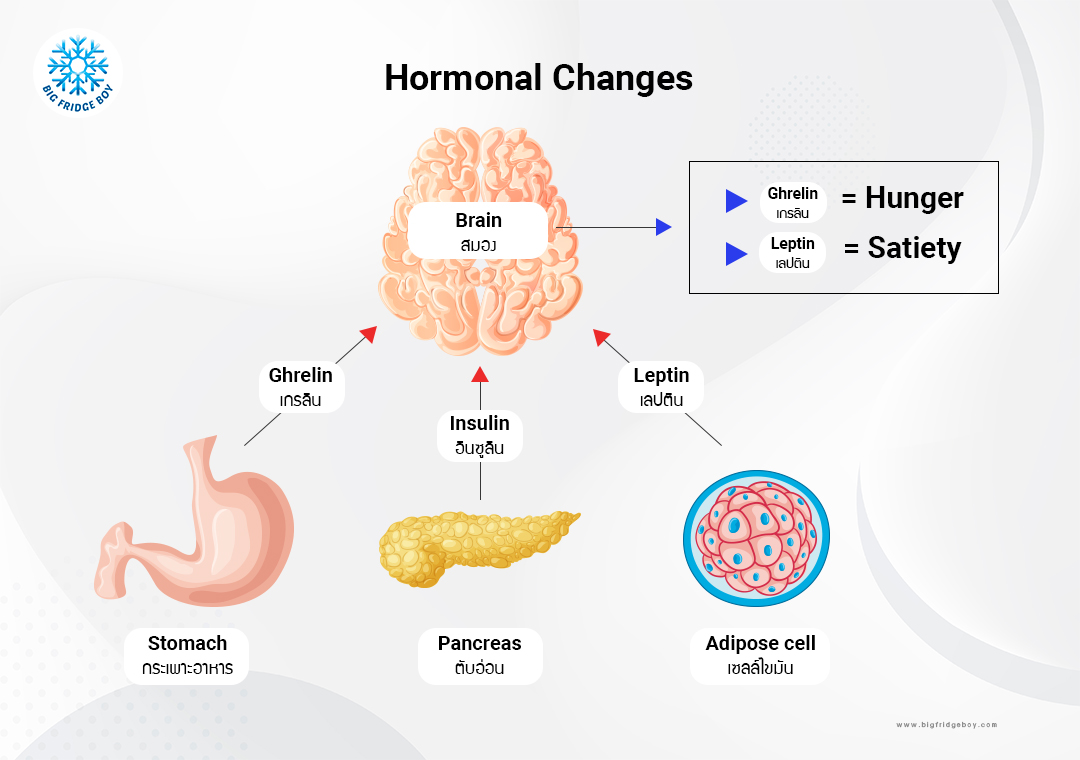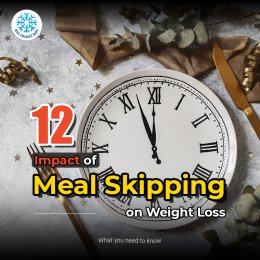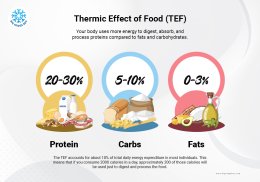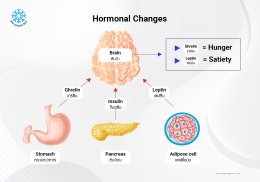The Impact of "Skipping Meals" on Weight Loss
Last updated: 16 May 2023 | 1490 Views |

When it comes to weight loss, there is a plethora of advice and strategies available, one of which is skipping meals. This method, often perceived as a simple way to reduce calorie intake, might seem like a straightforward path to losing weight. However, the reality is often quite different.
The human body is a complex system, and its response to skipped meals can be counterintuitive, leading to consequences that can hinder weight loss and impact overall health. This comprehensive review explores the various impacts of skipping meals on weight loss, shedding light on how this common practice can disrupt normal bodily functions and impede weight loss efforts. It emphasizes the importance of a balanced diet, regular physical activity, and overall well-being in the pursuit of healthy, sustainable weight loss.
Overeating and Cravings
When you skip a meal, it's likely that you will feel hungrier later, which can lead to overeating at your next meal. Moreover, when you're very hungry, you might be more likely to crave high-calorie, high-sugar foods, leading to an overall increase in calorie consumption.
Slowed Metabolism
Regular meals help keep your metabolism active. When you skip meals, your body goes into 'starvation mode,' slowing down your metabolism to conserve energy. This metabolic slowdown can hinder weight loss efforts.

Thermic Effect of Food (TEF)
When you eat, your metabolism increases for a few hours to digest the food and absorb its nutrients. If you skip a meal, you miss out on this metabolism boost, which could contribute to weight gain over time if it becomes a habit.
The TEF accounts for about 10% of total daily energy expenditure in most individuals. This means that if you consume 2000 calories in a day, approximately 200 of those calories will be used just to digest and process the food.
However, it's important to note that the TEF can vary depending on the macronutrient composition of a meal. Proteins have a higher thermic effect (around 20-30% of the energy consumed) compared to carbohydrates (5-10%) and fats (0-3%). This means that your body uses more energy to digest, absorb, and process proteins compared to fats and carbohydrates.
Blood Sugar Levels
Regular meals help maintain steady blood sugar levels, which can prevent feelings of extreme hunger and subsequent overeating. Skipping meals, especially for people with certain health conditions like diabetes, can lead to dips and spikes in blood sugar levels, which can be harmful.
Brain Function
Regular meals are also important for maintaining optimal brain function. Skipping meals can lead to decreased concentration, reduced productivity, and mood swings due to fluctuations in blood sugar levels.

Hormonal Changes
Skipping meals can also mess with your body's hunger hormones, such as ghrelin and leptin. Ghrelin, often referred to as the 'hunger hormone', increases when you haven't eaten in a while, leading to increased hunger and potential overeating. Leptin, on the other hand, is the hormone that signals to your brain that you're full. If you skip meals, your leptin levels may decrease, making it harder for you to feel satisfied when you do eat.
Muscle Loss
Chronic meal skipping can lead to muscle loss. Muscle tissue is metabolically active, meaning it burns more calories at rest than fat tissue. If you lose muscle, your metabolic rate might decrease, which can impede weight loss.
Nutrient Intake
Skipping meals also means missing out on essential nutrients, which can lead to nutritional deficiencies over time. Each meal is an opportunity to nourish your body with the vitamins, minerals, and other nutrients it needs to function at its best.
Increased Insulin Resistance
Skipping meals, especially on a frequent basis, can lead to insulin resistance. This condition makes it harder for the body to effectively use insulin, leading to higher blood sugar levels. Over time, insulin resistance can lead to type 2 diabetes and make weight loss more challenging.
So, in short, insulin is a hormone made by your body that allows your cells to use glucose for energy. Without insulin, the glucose just stays in your bloodstream, and your body's cells can't function properly. This is what happens in a condition called diabetes, where either the body doesn't make enough insulin, or it can't use the insulin it does make effectively.
Impact on Physical Performance
If you're physically active, skipping meals can impact your performance. Your body needs adequate fuel to function optimally during exercise. Without the proper nutrition, you may feel fatigued more quickly and have a harder time recovering after your workout, which can hinder your weight loss progress.
Effects on Sleep
Your eating patterns can affect your sleep. Skipping meals can lead to problems falling asleep or staying asleep. Poor sleep can affect various hormones related to hunger and fullness, making weight management more difficult.
Mental Health Impact
Regularly skipping meals can have an impact on mental health. Fluctuations in blood sugar can affect your mood and energy levels, potentially contributing to feelings of depression and anxiety. In addition, the act of skipping meals can increase stress levels and lead to a problematic relationship with food.
In summary, it is clear that skipping meals can have both immediate and long-term effects that can hinder weight loss and negatively impact overall health. It can disrupt metabolic rates, blood sugar levels, and hormone balance, lead to overeating and unhealthy food choices, and may even contribute to muscle loss, insulin resistance, poor physical performance, disturbed sleep patterns, and mental health challenges. The potential for nutrient deficiencies also presents a significant concern.
While the idea of skipping meals might seem like a simple shortcut to losing weight, it often results in more harm than good. A more sustainable and health-focused approach involves maintaining a balanced, nutrient-rich diet with regular meals, combined with consistent physical activity. It's important to remember that weight loss should be about promoting overall health and well-being, not just reducing calorie intake.






